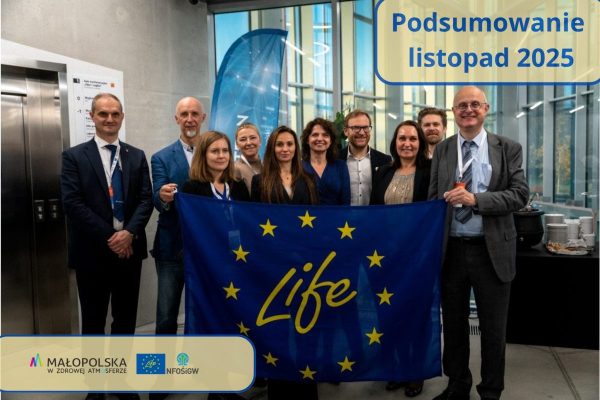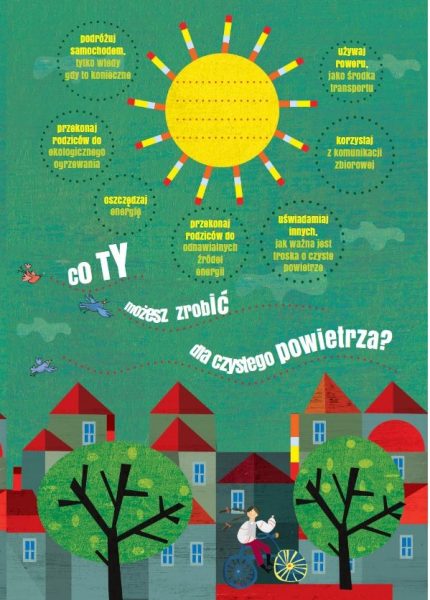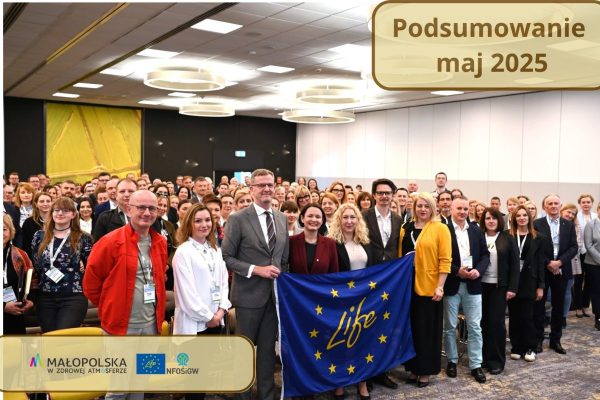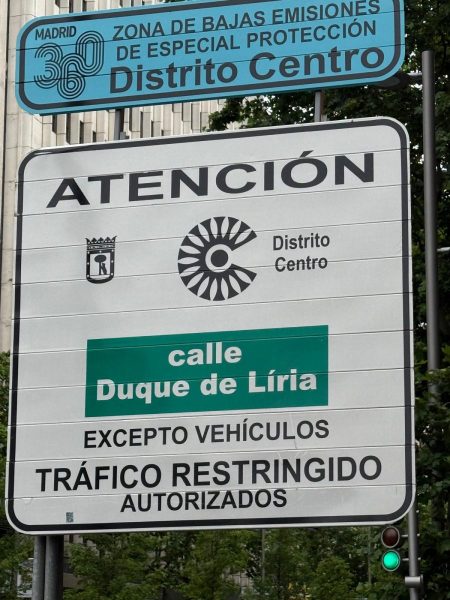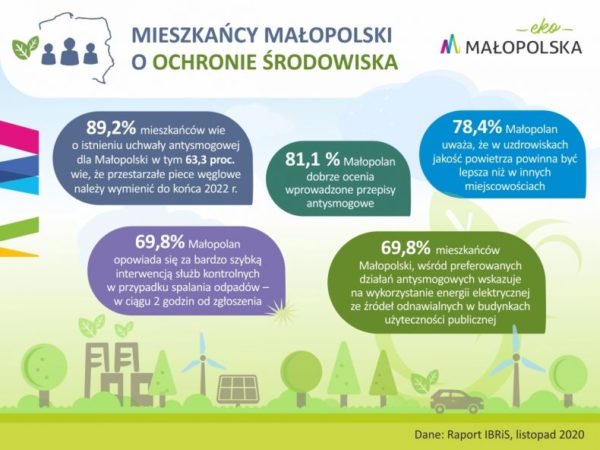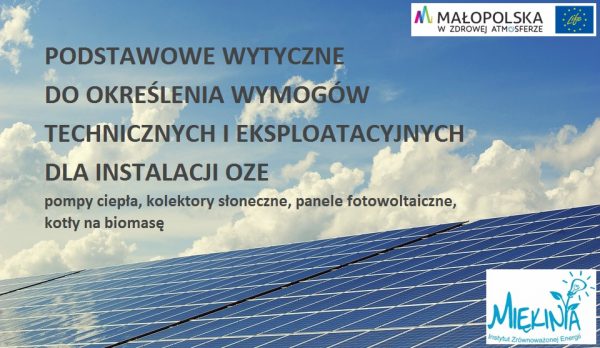The General Court has confirmed the validity of the air quality plan

Today the Voivodship Administrative Court rejected the complaints of the municipalities of Rzepiennik Strzyżewski and Oświęcim against the “Air Quality Plan” adopted by the Sejmik of the Małopolska Region. This means that the comprehensive project of measures to improve air quality in our region, in force since 27 October 2020, is valid and will not be discontinued.
I am very glad that the pleas of mayors of two communes were rejected by the WSA. The complaints of the communes stemmed from their disagreement with some of the duties imposed on the local governments by the Air Quality Plan. The Voivodship Administrative Court confirmed the validity of the Programme, which for us – all inhabitants of Małopolska – is a hope for better, healthier life. I would like to remind you that over 40,000 people die in Poland every year due to air pollution. Smog is also the cause of many troublesome illnesses, such as heart and respiratory problems, or childhood developmental defects.
– Deputy Marshal of Małopolska Tomasz Urynowicz comments on the VAC verdict.
Adopted in September 2020, the Air Quality Plan will help accelerate anti-smog measures in all municipalities by putting the tasks of local authorities in order. It also introduces a number of regulations beneficial to residents – from the creation in each Małopolska municipality of an eco-manager position and a service point for the Clean Air grant programme, to support for people affected by so-called energy poverty. The recommendations described therein – such as the ban on public funding of coal-fired cookers from the beginning of this year or the elimination of classless heating devices by the end of 2022 – are firmly in line with the government’s strategic programme “Energy Policy of Poland until 2040”.
The Małopolska POP was developed on the basis of the Environmental Protection Act, amended in 2019, as well as the Ordinance of the Minister of the Environment on air quality programmes and short-term action plans from the same year. The latter document is a direct result of the 2018 judgment of the Court of Justice of the European Union, which was issued due to years of exceedances of air quality standards in Poland, including in particular the permissible level of PM10 dust. “The Air Quality Plan for Małopolska” was subject to a two-stage public consultation.
The municipalities of Rzepiennik Strzyżewski and Oświęcim have challenged certain obligations imposed on them by AQP as not provided for in the Environmental Protection Law. This includes quick inspections after residents report burning waste or entering into an agreement with the Provincial Environmental Protection Fund on running service points for the Czyste Powietrze subsidy program.
However, the law obliges the Board of the Małopolska Region, as the administrative body developing the local Air Quality Plan, to identify the corrective measures and the bodies and entities responsible for their implementation.
The most important measure to improve air quality in Małopolska is the replacement of outdated cookers and heating equipment. This process should take place with maximum use of government subsidy programmes such as Clean Air and Stop Smog. Also, the Board of the Małopolska Region has earmarked EUR 420 million within the Regional Operational Program, in the 2014-2020 financial perspective, for measures related to the implementation of the Air Quality Plan, including EUR 96 million for thermal modernisation of public facilities and EUR 100 million for boiler replacement.
Each of the 182 municipalities in the Małopolska voivodeship had the opportunity to apply for funds for environmental protection investments available under ROP 2014-2020. This year, municipalities can draw funds for the implementation of tasks resulting from AQP from the additional PLN 100 million that the government allocated for the implementation of the Clean Air Programme – emphasises Deputy Marshal Tomasz Urynowicz. – We are also familiar with the problem of staff shortages in municipalities. That is why within the EU LIFE Integrated Project “Implementation of the Air Quality Plan for the Małopolska Region” in 62 communes that are partners of the Project the positions of eco-consultants were created, in 60% financed from the European funds. Eco-managers are also employed in the municipalities of Rzepiennik Strzyżewski and Oświęcim
– he adds.


